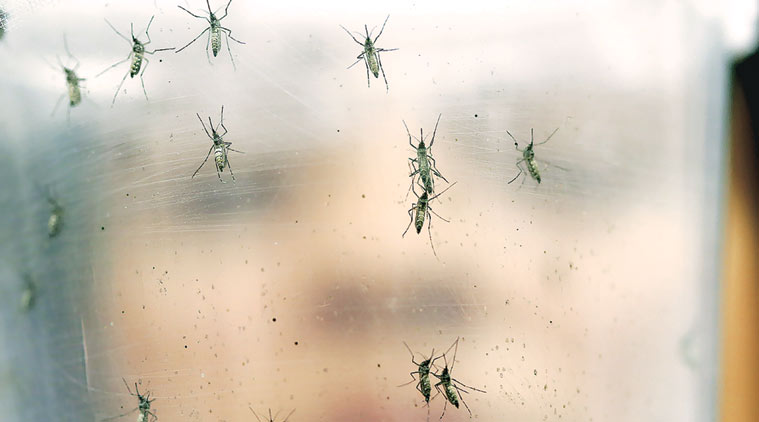Brazilian gene resulting in birth defects missing in Indian zika virus: ICMR
A team of scientists from National Institute of Virology in Pune have just finished a full genome sequencing of the zika virus spreading in India and concluded that the gene responsible for causing microcephaly in Brazil was absent in the Indian strain.

In 2015, a similar outbreak in Brazil was found to have been responsible for serious birth defects in some newborns. (Source: File Photo)
The zika virus that has currently infected 163 persons in India lacks a particular gene that had led to serious birth disorders in new-born babies delivered by infected mothers in Brazil three years ago, scientists have said.
A total of 163 persons have tested positive for zika virus in the country in the last three months, of which 64 are pregnant women. All but four of them, including all pregnant women, are in Jaipur. Two persons in Bhopal and one person each in Bihar and Gujarat have also tested positive.
In 2015, a similar outbreak in Brazil was found to have been responsible for serious birth defects in some newborns. Pregnant women infected with the virus had delivered babies with abnormally small heads, a condition referred to as microcephaly.
A team of scientists from National Institute of Virology in Pune have just finished a full genome sequencing of the zika virus spreading in India and concluded that the gene responsible for causing microcephaly in Brazil was absent in the Indian strain.
“The good news is that this mutation associated with microcephaly is not found in strains of zika virus that has infected persons in Jaipur,” Dr Balram Bhargava, director general of Indian Council of Medical Research (ICMR), told The Indian Express.
However, the scientists say this still does not conclusively rule out the possibility of microcephaly in Indian cases, and all pregnant women were under close medical watch. “We cannot say microcephaly will surely not occur because there are several unknown factors that may still lead to the disorder,” said Bhargava.
Zika virus is primarily transmitted to people through the bite of female aedes mosquitoes, including aedes aegypti and aedes albopictus, also responsible for spreading chikungunya and dengue.
ICMR scientists have been monitoring pregnancies of all 64 women who have tested positive for zika in Jaipur, and will track the growth of their children to record any developmental abnormalities, officials said.
In November 2015, Brazilian Ministry of Health had declared a public health emergency because of a dramatic increase of reported microcephaly among newborns. Then an intense international public health response had identified a causal link between zika virus infection and birth defects.
While Health Ministry has set up a joint monitoring group under Directorate General of Health Services and ICMR to monitor the status of zika virus in India, experts like Dr Anita Kar, who heads Birth Defects and Childhood Disability Centre in Pune, said it was extremely important to keep up with the surveillance throughout the country. “The vector is in the country and the focus has to be pregnant women,” she said, making a strong case for stepping up the campaign about zika virus.





















.png)












No hay comentarios:
Publicar un comentario